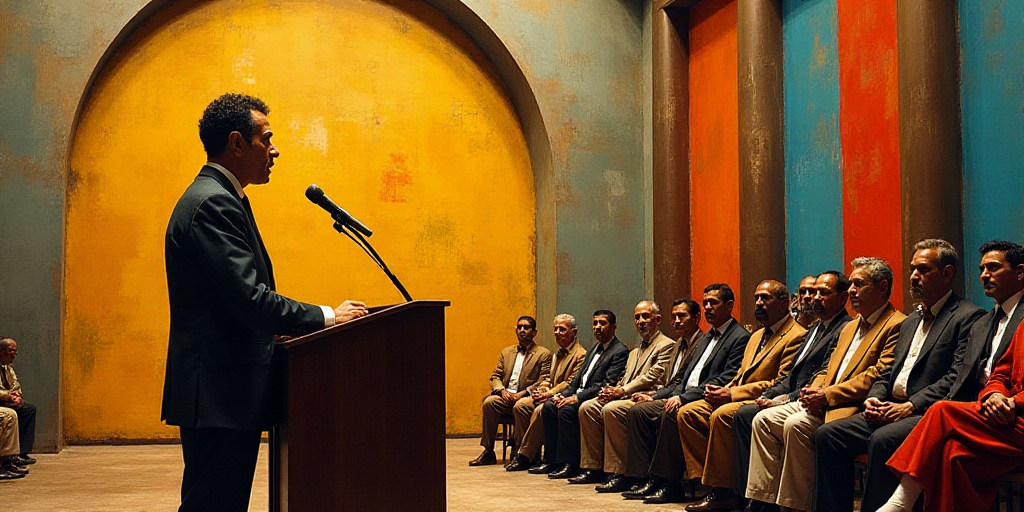Background on the Sindicato Nacional Minero Metalúrgico “Frente”
The Sindicato Nacional Minero Metalúrgico “Frente” is a prominent labor union in Mexico, representing miners and metalworkers. Led by Carlos Pavón Campos, the union has been a significant voice in advocating for workers’ rights and fair compensation.
The Utility Pay Cap Controversy
Since 2021, the Mexican government implemented a cap on utility payments (PUT) through an amendment to the Federal Labor Law. This change limits the maximum utility payout to 90 days or the average of the past three years. The Sindicato Nacional Minero Metalúrgico “Frente” argues that this reform negatively impacts workers’ salaries.
Union’s Response and ILO Complaint
Carlos Pavón Campos, the union leader, announced the filing of a complaint with the International Labour Organization (ILO) during the VIII National Assembly of Reports in Mexico City. The union claims that, in 2022 alone, its sections lost nearly 900 million pesos due to the PUT cap.
Pavón Campos explained, “We are the only union that has taken legal action against the subcontracting reform, which established a cap on utility payments. This amendment was made to the Federal Labor Law in Article 127, Fraction VIII, stating that the maximum utility payout cannot exceed 90 days or the average of the past three years. This is a government-imposed restriction on workers’ income.”
The union has previously filed lawsuits against the subcontracting reform and decided to escalate their concerns to international bodies. Pavón Campos stated, “We went to the ILO and filed a complaint. They accepted it, and a Commission will be set up in Costa Rica to examine the issue. Mexico is a signatory to Convention 95 on Wage Protection, ratified in 1949.”
ILO Process and Union’s Strategy
No other unions have sought legal means to modify the 2021 reform, despite constitutional provisions for a commission to set the worker compensation percentage every decade. The last update was in 2020, fixing the rate at 10%.
Pavón Campos emphasized, “We will continue defending workers’ acquired rights at the ILO. We will attend hearings, present our case, and demonstrate the negative impact on workers caused by this cap.”
The union leader also plans to denounce the recent INFONAVIT law reform, which now allocates 5% of workers’ income to government housing construction.
Union’s Stance on Compliance and Removing Caps
Despite negotiating utility payments with mining companies, Pavón Campos stressed the importance of adhering to constitutional provisions and eliminating caps.
“Where are those who fight for the worker? I long to see a more assertive era in Mexican labor history. The Federal Labor Law was earned through sacrifices, including countless lives. Sadly, the current generation lacks the experience and courage to stand up for workers’ rights,” he lamented.
Key Questions and Answers
- What is the Sindicato Nacional Minero Metalúrgico “Frente”? It is a prominent labor union in Mexico representing miners and metalworkers, led by Carlos Pavón Campos.
- What is the controversy surrounding the PUT cap? The Mexican government implemented a cap on utility payments (PUT) through an amendment to the Federal Labor Law, limiting maximum payouts to 90 days or the average of the past three years. The union argues this negatively impacts workers’ salaries.
- Why did the union file a complaint with the ILO? The Sindicato Nacional Minero Metalúrgico “Frente” claims that, in 2022 alone, its sections lost nearly 900 million pesos due to the PUT cap. They filed a complaint with the ILO to address this issue.
- What is the union’s strategy moving forward? The union will continue defending workers’ rights at the ILO, attending hearings, and demonstrating the negative impact of the PUT cap.
- What other issues does the union plan to address? The union intends to denounce recent law reforms in INFONAVIT, which allocate 5% of workers’ income to government housing construction.
- Why is compliance with constitutional provisions important to the union? The union stresses adhering to constitutional provisions and eliminating caps, emphasizing the sacrifices made to establish labor rights in Mexico.






